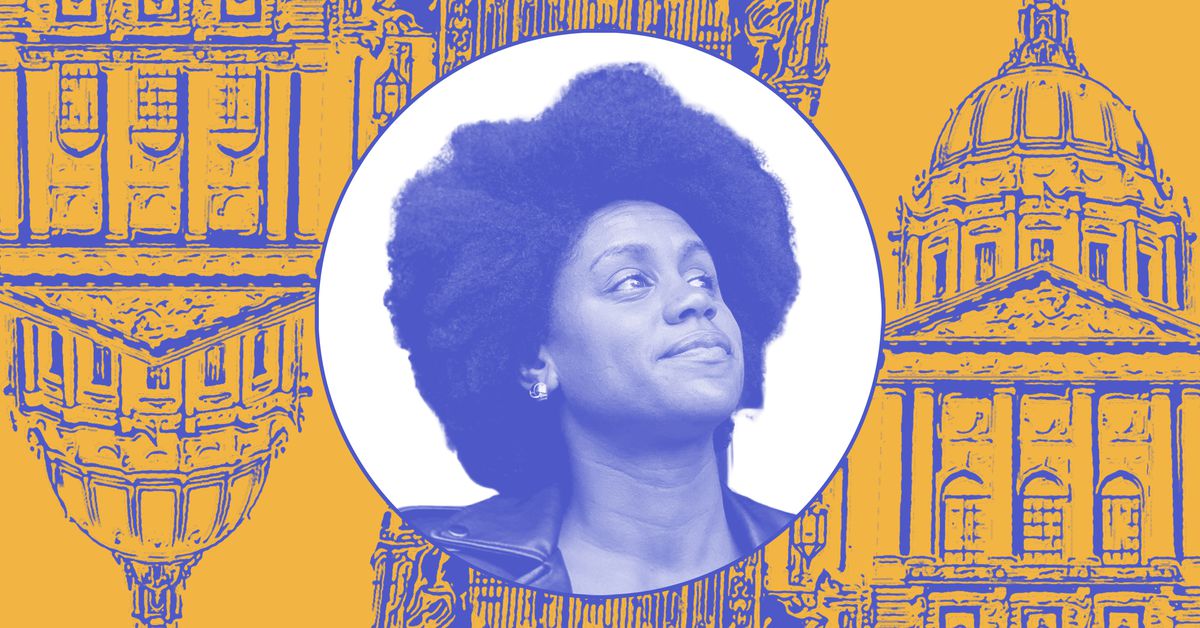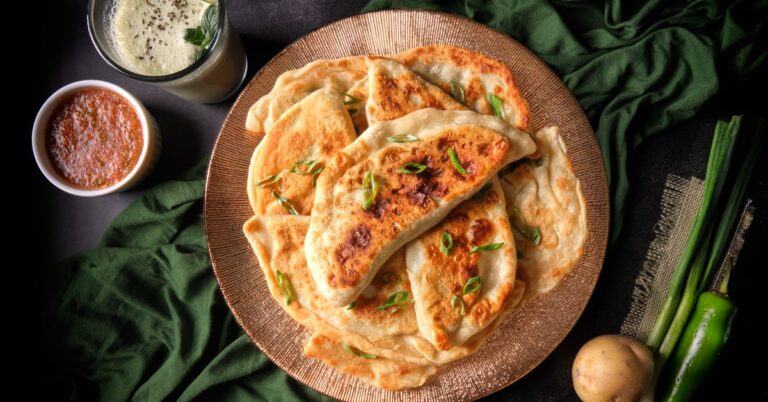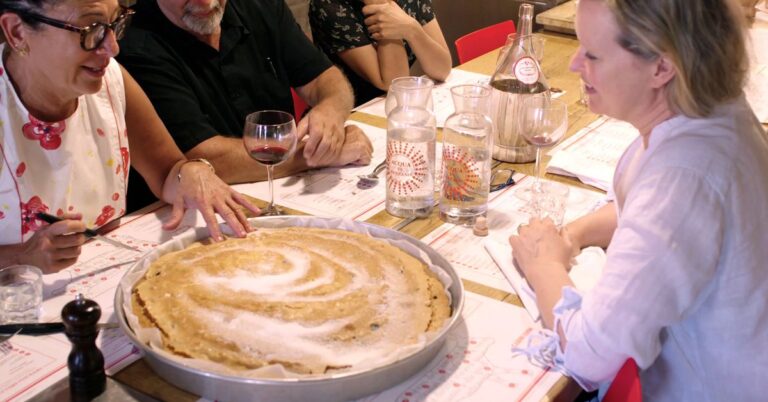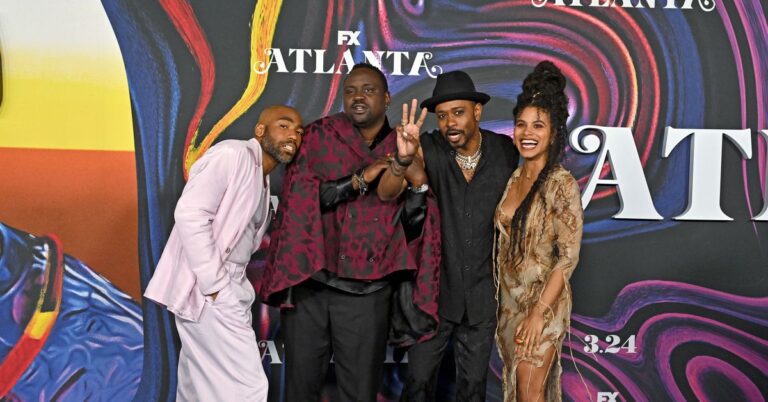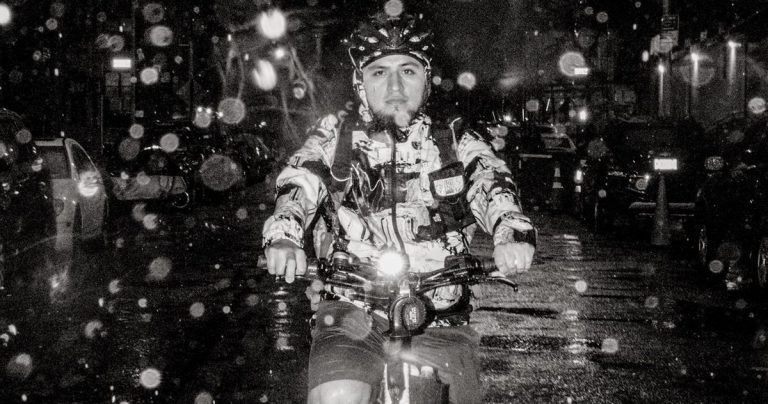Shakirah Simley on Her Career in Food, Activism, and Public Service
In How I Got My Job, folks from across the food and restaurant industry answer Eater’s questions about, well, how they got their job. Today’s installment: Shakirah Simley.
In the past few years, Shakirah Simley transitioned from working in the food industry to founding a city government department to running a 100-year-old community center — but these weren’t career changes. The Harlem-raised University of Pennsylvania grad has been operating at the intersection of food and social justice for her entire adult life.
Since college, Simley has acted as an organizer, incorporating community development into every job she’s had. For nine years, she was the Master Preserver and owner of a small-batch artisan jam company, while simultaneously acting as a food and nutrition policy associate at a public health organization and then a community programs manager for the beloved San Francisco grocery company Bi-Rite.
After a restorative and necessary mental health break, Simley found her way into city government. Her position as a legislative aide for councilperson Vallie Brown led directly to her appointment as the director of the Office of Racial Equity for the city and county of San Francisco — a new department she helped create. But it was Simley’s own trust in herself and the importance of her work that organically allowed her to reach that point.
But no one could have expected that this role would quickly turn into emergency service duty when the pandemic hit. So after over a year of working in San Francisco’s COVID-19 command center and ensuring the city’s emergency response had an equitable lens, Simley has moved forward to become executive director of Booker T. Washington Community Service Center. In this interview, Simley talks about following her instincts, the strong connection between food and public service, and the value of maintaining mental health.
Eater: What did you originally want to do when you started your career?
Shakirah Simley: I wanted to be a lawyer, but I quickly found out that wasn’t necessarily the only path to making social change.
Did you go to college? If so, would you recommend it?
I went to the University of Pennsylvania and I studied cultural anthropology and urban studies. While I was there, I did a lot of social justice work. I started the UPenn Student Labor Action Project, I did a lot of work on minority student and faculty recruitment and retention, and I was heavily involved in leading the on-campus multicultural multiethnic groups. As a Black woman and as a working class person, going to an elite university was really challenging. I found a community of folks who came from similar backgrounds, and who wanted to change the university for the better. I developed some of my earliest organizing and communication skills, and I had the ability to study things that really mattered and that I cared about. I’m really grateful for my experience even though I did face a number of challenges. It literally laid the groundwork for everything that I’m doing today.
Student loans are such a part of the conversation around higher education right now. Has your career trajectory been impacted by debt in any way?
I did work-study, I got grants, and I got a scholarship, but the fact of the matter is, my college education was twice as expensive as my mom’s take-home salary per year as a social worker. I basically self-financed my education. My family was able to help me with my living expenses, which was really helpful, but I had to work and I had to really grind in order to afford it. I did have to take on a few loans, which I’m paying for to this day. I could’ve easily gone into a more corporate sector like finance or law, but I felt like those things weren’t really aligned with my core values. I probably would have paid the loans off a little bit faster, but I’ve been really driven by social service and that is really important to me.
Hopefully leadership in the White House will be serious about erasing student loan debt and we have the preservation of our forgiveness programs for our public service employees, then I’ll be okay. But if not, then I’ll just continue to chip away at this. It is what it is.
Sometimes it’s hard, especially when I was working in the food and hospitality industry. There are a lot of things you can’t do when you’re saddled with debt — you can’t travel, you can’t pay for healthcare, you can’t take a sick day, sometimes you have to make hard choices. It definitely has shaped our generation and how we decide to go about work. It’s a burden that we bear; I really hope we can see the federal government step up to lighten the load.
What was your first job? What did it involve?
I was a fellow for the NYC Commission on Human Rights. I was in charge of a workers’ rights curriculum and an employment discrimination curriculum. I had done some labor organizing in college, so I took that experience into my fellowship. I did a civil rights oral history documentation project. We also supported the city’s investigators in regards to some discrimination cases.
How did you get into the food industry?
While I worked for the city government during the day, I volunteered as a community chef for Just Food [a nonprofit in NYC focused on food access] on nights and weekends. I started learning more about food deserts. I grew up in Harlem and I hadn’t understood why we didn’t have a proper grocery store until the neighborhood started to be gentrified, or why we didn’t have access to fruits and vegetables unless my mom bought them uptown. The way I came into food and hospitality was through a justice lens.
After growing up in New York City and going to school not too far away, I set my sights on California and decided to focus more on food justice. I felt like Oakland and San Francisco were doing a lot more in that field. This was over 11 years ago. I reached out to this amazing chef and activist Bryant Terry. He and his wife Jidan were kind enough to have me over for dinner. He’s been my mentor ever since.
When I got to California, I dove headfirst into working in food. I started Slow Jams, my own jam and preserving business, through La Cocina, the incubator kitchen for female entrepreneurs. I was also a food and nutrition policy associate at a public health organization in Oakland. I was working on a number of issues including improving school food, making sure people had access to food stamps and EBT cards, and expanding farmers markets. I worked with a lot of communities of color, trying to reverse the impact of childhood obesity.
Though the Bay Area is known for being a food mecca and being innovative when it comes to pushing for organic practices and sustainability, I felt like we needed a stronger race, gender, and class lens. I really wanted to center that in my work.
What was the biggest challenge you faced when you were starting out in the industry?
People take food for granted. Now I think folks are starting to understand the impact food has on labor, the economy, health, and gender. Food operates at intersections and should be included in any sort of policy. It can be a way to bring folks together as a real organizing strategy and tool. It was really hard to convince people of that.
When was the first time you felt successful?
We had been working on getting California farmers markets to accept EBT. My team at the public health organization had been working on a state and local level to push for that. We were able to pass a state law that required every farmers market in California to accept CalFresh, which is the food stamp program. Understanding how food is meaningful and how it can have a broad impact, that was one of the first times I felt successful and made the right career choice.
Did you have any other validating experiences?
I applied for a Fulbright scholarship to study at the University of Gastronomic Sciences in Pollenzo, Italy. Because of my background and my family, I never really had a passport, and I never got to travel abroad because we never had money to do those things.
Surprisingly enough, I got the scholarship, which they only give to one American. I spent a year in Italy and I got my masters in food culture and communications. It was a really incredible program. I also got a really strong foundation in food, wine, and gastronomy.
What did you do when you returned to California?
Coming back from Italy, I started working at Bi-Rite. First as a cashier, and then I worked my way up the ranks and became the community director. That was over the course of five and half years. I really helped build the business and made sure it had a social justice and equity lens through its business practices.
:no_upscale()/cdn.vox-cdn.com/uploads/chorus_asset/file/19099931/AlyssaRingler_190727_EAT_611.jpg)
Did you have any setbacks? What were they?
In 2017, I had to take a mental health break. While I was working at Bi-Rite, I felt like there was so much I was doing for the community, from showing up for my friends who were launching food businesses to helping organize events to starting Nourish Resist. I was so burnt out. I felt really broken. That happens sometimes to folks in food, especially when you’re working in food and as an activist. We carry the work with us 24/7. The innate problems are so crushing. My mental health was at risk and nobody was going to give me permission to take time off, so I decided to leave my job. I actually left San Francisco for a while. I spent time with my family and friends.
I’m so glad I did that because I don’t think I would be in the same headspace that I am today or have been able to work in politics and city government if I hadn’t taken that time. It was definitely a financial struggle for me. I had to take some jobs, but I had to do this. I asked myself: “Who am I? What are the things that I like to do when I’m not working? How do I better manage my anxiety? How do I set better boundaries with people who are very extractive? How do I develop a healthier relationship with work?” Those are lessons I’m still learning, but I can better understand my limits.
What was the turning point that led to city government?
People always say to me, “Going from working in food to a career in city government and politics must’ve been a big jump for you.” It was never a jump for me. Ever since I was 19, I’ve been an organizer. I’ve always worked in community development, and I’ve always been a systems thinker. I feel like my career is an evolution of that connection and commitment to service. I’ve kept that equity lens and stayed true to the things that are important to me as a person.
After my mental health break, I was the director of a community center in the Bayview, a working-class, mostly African-American area in San Francisco. It was through a city agency called the Public Utilities Commission, which is basically the city’s water and sewer department. It’s one of the few revenue-generating city departments and it has a set of community benefit dollars that have to go back into communities that they impact. It was my job to hold the agency accountable for all the promises it had made. Because of our collective work, there is going to be a brand-new community center built to make good on the promise that the Public Utilities Commission made to the Bayview.
Then I was appointed and poached by city councilperson Vallie Brown to be her legislative aide and head up her policy on housing, gender, homelessness, and racial equity. I started working at city hall, which was a crash course in local government politics and I learned a lot. I relied a lot on my food skills and what I knew from food and hospitality environments to be a really great legislative aide. I helped Vallie co-author legislation on creating a new Office of Racial Equity for the city and county of San Francisco. The legislation passed and we have full support of Mayor London Breed. I didn’t think I would be the director of the office when we were writing the legislation, but the mayor’s office and the director of the human rights commission asked me to step into the role.
What did that job involve?
I was the director of the Office of Racial Equity for the city and county of San Francisco. I got to do something very rare in city government by building a department from scratch. I hired folks, designed a budget, and set a racial equity framework for the entire city. I held city departments accountable for racial discrimination or institutional racism inside their departments and also in their service delivery.
What were the most important skills that got you there?
I think that food people are particularly well positioned to work in public service. Food and hospitality folks know how to create a welcoming and inclusive environment, how to deliver high quality service, how to manage a P&L [profit and loss statement], and how to keep things clean, efficient, and orderly. They have really great people skills and are system thinkers. That’s why I think food and hospitality people would be fantastic working in government. People don’t often make that connection, but it’s important.
How did your job change during the pandemic?
I was deployed, which means I was an essential worker. When you’re a public servant, and a natural disaster or public health emergency happens, you’re transferred to emergency service duty. I was the Chief Equity Officer for San Francisco’s COVID-19 Command Center, running the city’s emergency response through an equitable lens and making sure our resources went to our most vulnerable folks, from PPE to hotel rooms for isolation and quarantine to food for hungry families.
How did the pandemic affect your career path overall?
Through it all, maintaining and uplifting a better system to feed our communities (which completely broke down and had to be recreated due to COVID) and protect workers and small food businesses has been a big part of my work. Before the pandemic, we had one in four San Franciscans who were food insecure. Now, I fear that number is much, much higher. Not to mention the closures and impacts on our restaurants, food producers, grocery stores, farmers markets, and farmers trying to stay alive (some, literally). It’s going to take a long time to heal and some folks may never recover. In the meantime, I’m going to leverage my new job as executive director of Booker T. Washington Community Service Center to fight for better access and food sovereignty for Black and brown folks here in SF.
What does your new job entail?
I’m in charge of a 70,000-square-foot community center and affordable housing development. It’s the oldest Black-led, Black-serving institution in SF at over 100 years old. We serve vulnerable children, families, seniors, and TAY (transitional aged youth out of the foster care system) through a number of educational, workforce development, wellness, food, and family stabilizations programs.
What advice would you give someone who wants your job?
It takes a lot of grit and patience and resilience. White supremacy and institutional racism are 400 years in the making. Dismantling them is not going to happen in a year. You need to be resilient. Take time to know yourself, know your limits, and know what you’re capable of. A lot of my work has been organic because I trusted myself. I had a lot of family and friend pressure to not focus on this work, but it felt right to me and I really trusted that. I’m happy I did because if I hadn’t listened to myself and worked on myself, I wouldn’t have been able to do this.
Surround yourself with people who are invested in the community, but also invested in you personally. I feel super lucky that I have this incredible community of folks that I rely on every single day to help me be the best food justice advocate and director that I can be.
Morgan Goldberg is a freelance writer based in Los Angeles.
Photo of Shakirah Simley by Ohn Ho
